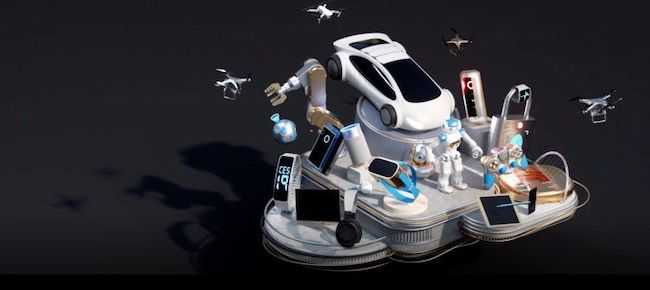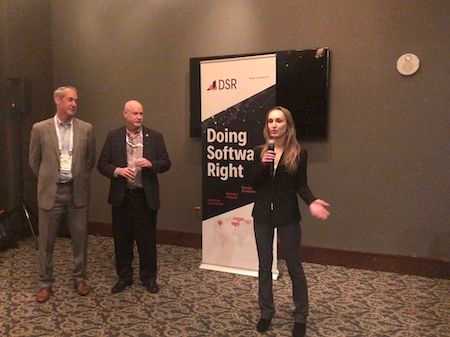Thoughts After CES 2019
February 28th, 2019
CES 2019 at a Glance
Every year we make our way to CES (Consumer Electronics Show) in Las Vegas for the annual consumer electronics exhibition. Imagine over 4,500 vendors presenting new ideas and technological developments spread across an entire week — it really does give a whole new meaning to the city of lights. CES presents a great opportunity to meet like-minded individuals in similar fields, or different, helping catch new ideas, contacts, and ideas – it’s wonderful here.
The history of CES began over 52 years ago with organizers showing more progress each and every year. With the main theme being innovation and information technology, the width of coverage is vast:
- Robotics,
- Artificial Intelligence,
- Three-dimensional Printing,
- Design,
- Drones,
- Sport Technologies,
- Smart Home,
- Family & Lifestyle,
- Virtual Reality (VR),
- Games,
- Unmanned Vehicles,
- Music,
- Entertainment & Content,
- Cryptocurrency,
- Internet of Things (IoT),
- and Machine Intelligence.
All About IoT
The beginning of the year confirmed that IoT is coming to the mass market. Focus has shifted from smartphones to other smart devices — and manufactures are taking notice. Improved air quality sensors, door positions, windows, just to provide a few quick examples. There are even smart window systems being developed that can inform the home when a window is opened wider than an indicated gap, for example.
Consumers can now choose between a wide variety of smart devices and systems, putting real pressure on manufactures and companies to advance smart home ecosystems. But the problem doesn’t just end there. Consumers need a way to connect many different smart devices to a single system – easy management. This is where Zigbee and other wireless technologies flex their strength; gateways with multiantenna and customization service suggestions come to the rescue.
Hi Computer, Talk to Me
Voice automation control becomes more the norm than the rarity. It falls into many devices and almost everyone has them now. People want to have a voice assistant in their home, in the office, and in the car, like Jarvis from Iron Man. Project recipes from the Internet to the kitchen door by voice request? Yes, please! Yet, even Alexa from Amazon or Google-assistant do not always suit as a compromising option. Artificial intelligence is poised to grow wiser and communicate with people better and faster. Companies that once winced at the idea of software in their products are now flocking to CES. For example, Procter and Gamble - L’Oreal, are developing mirrors that can look at your face to determine if your skin needs support or treatment. Maybe just a care cream? Cameras take pictures of the users face and follow changes of the face in real time. Maybe they’ll even notice skin cancer in due time.
It is interesting that companies that are seemingly far from “software” come into the sphere of technology. These companies expand the development zone to such wide branches like automation for pets, children, sleep, and beauty. There are even smart leashes and collars! People even get interested in buying devices that can distribute pleasant smells throughout their homes. And what if you could connect a device that could command three-dimensional TV? Cars? Batteries? Spotify on your steering wheel? The ideas and possibilities are endless.
Robotics help businesses change their models. It is especially gratifying that companies competing in the past are starting to cooperate. To denote such activity, the new term ‘coopetition’ has appeared. ‘Coopetition’ should bring even greater breakthroughs in overall development. Teamwork gives rise to new achievements. SDKs help bring the product to market. Quick starts are real.
Meet & Talk
DSR had a lot of productive meetings with existing and prospective clients and it was the most successful CES to date. DSR was also a proud sponsor of the Zigbee Alliance Social - an invitation only event that was a great opportunity to bring all of the members together in one location and celebrate Zigbee successes from 2018. During this event, Zigbee Alliance announced several of the new developments and expansions of the standard and also unveil the location of the next member meeting. The atmosphere for the event was very warm and inviting and perfect for conversations and celebration.
In Closing
Here are seven key CES 2019 takeaways that caught our attention:
- IoT is finally an emerging mass market (and the data it gathers has lots of financial implications)
- Amazon and Google are in "hand-to-hand combat" driving voice technology into the Smart Home and beyond
- 5G, NB-IOT and Cat-M1 are expanding battery-powered WAN connectivity in amazing ways
- Drones—from airborne to underwater to John Deere—are becoming platforms
- Robotics are creating business change
- Artificial Intelligence is getting smarter
- "Coopetition" is happening in lots of places
IoT is moving capabilities out of smart phones and into different smart things. People want their homes, cars and offices to have a voice like Jarvis (see the Ironman movie franchise). And not everyone wants Amazon Alexa or Google Assistant as the go-between. Battery-powered WAN connectivity in a variety of speeds is making the cloud easier by “losing the gateway.” Drones and robotics platforms are giving new capabilities to businesses and consumers. Artificial Intelligence (“AI”) is changing the way products and services interact with humans. And if Apple and Samsung are teaming up, is it time to evaluate how "coopetition" might help your 2019 business goals?


